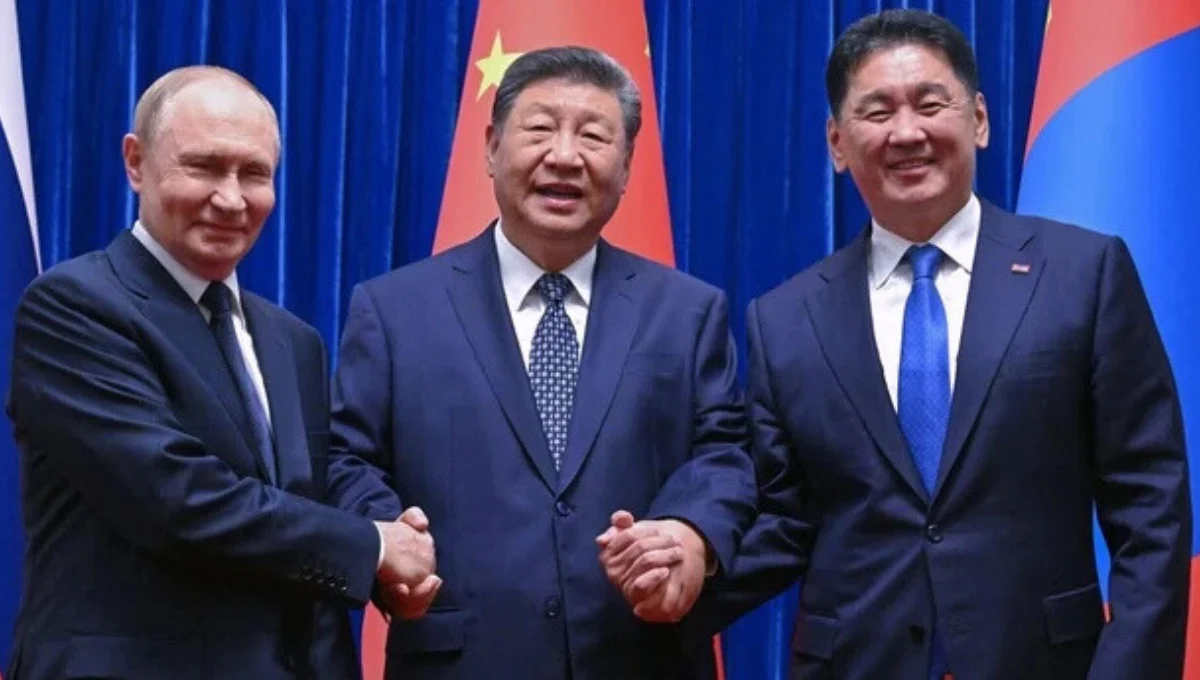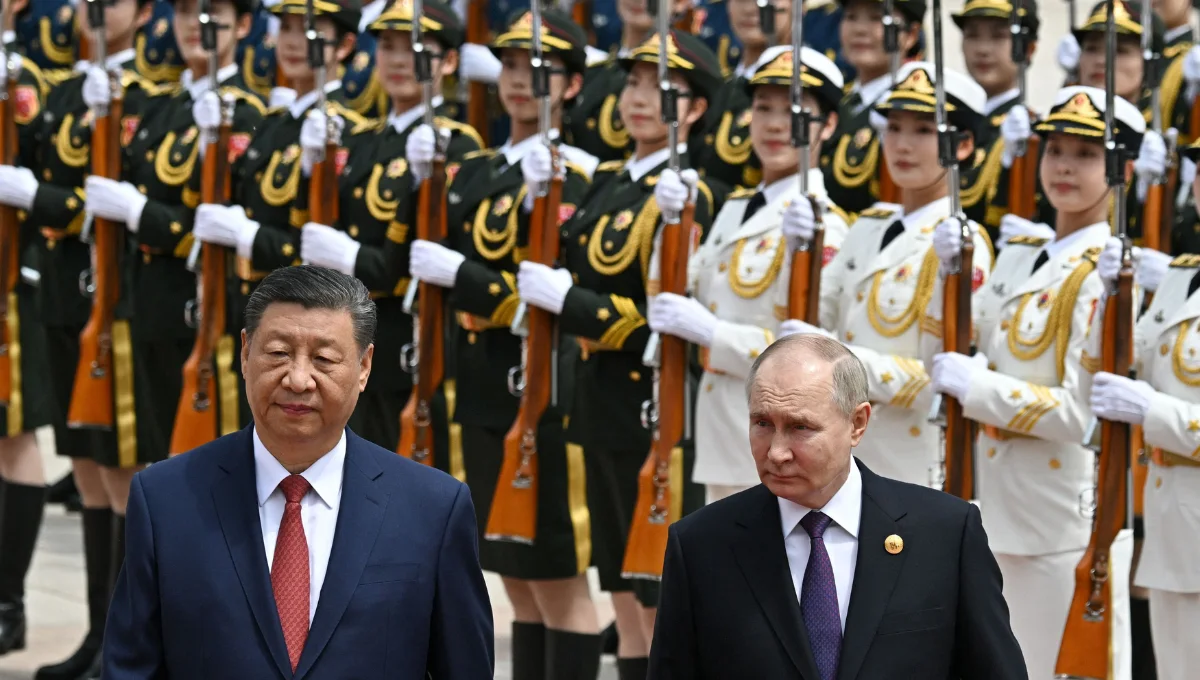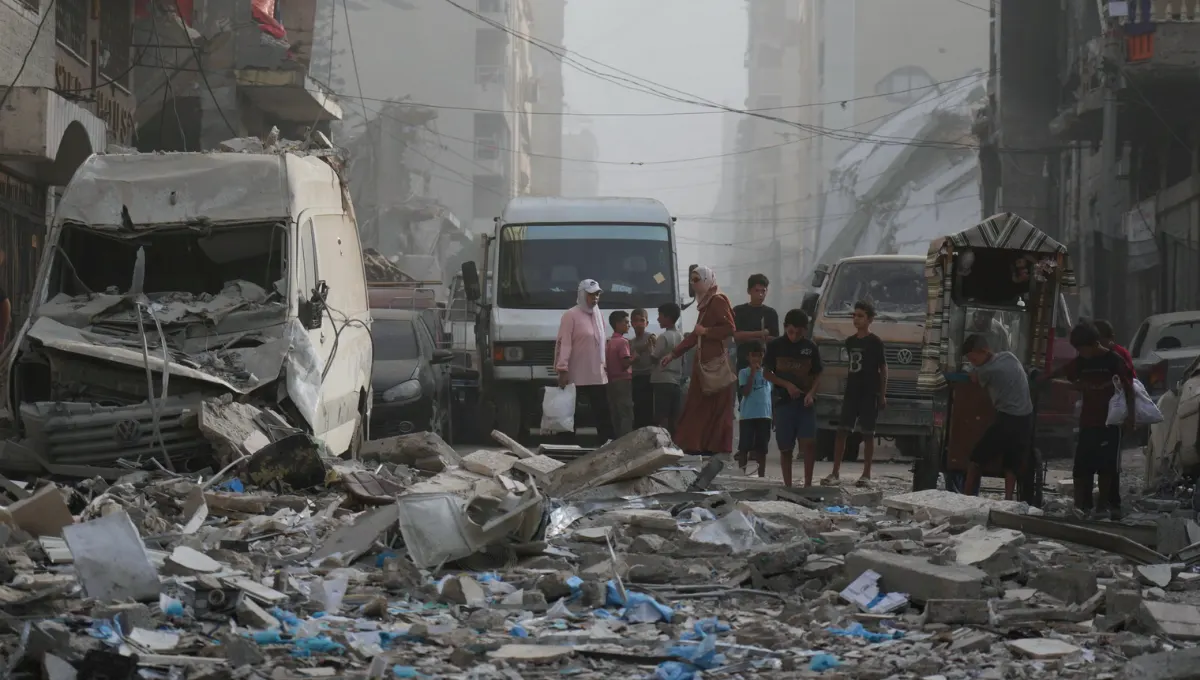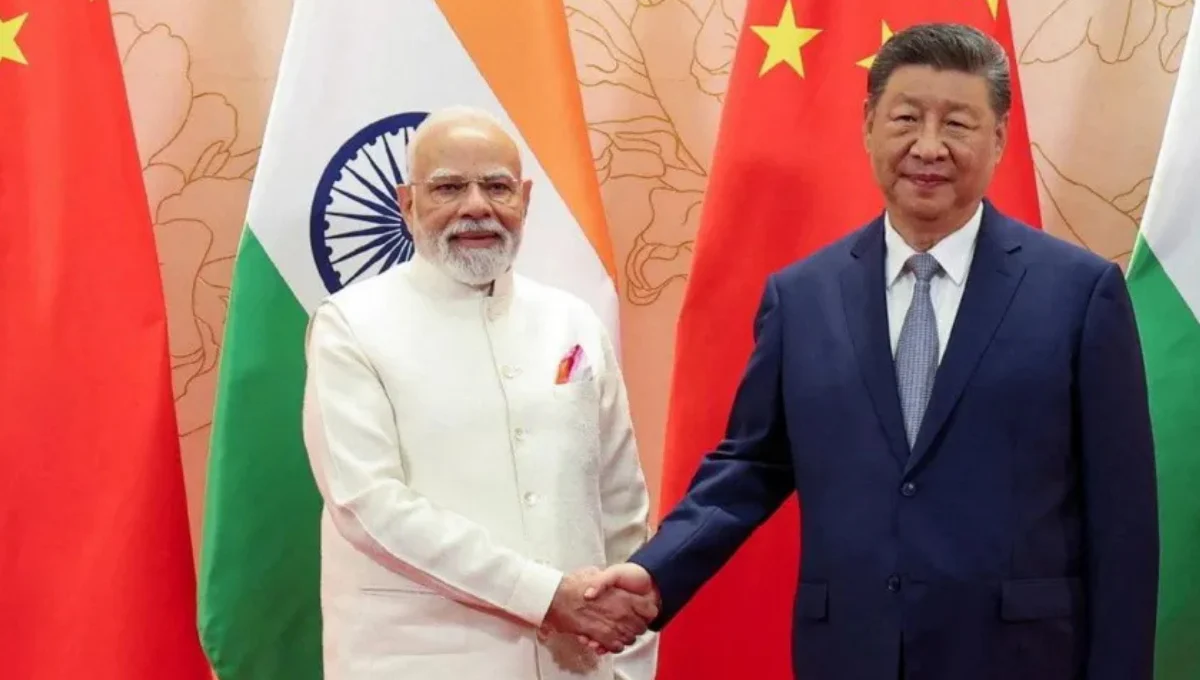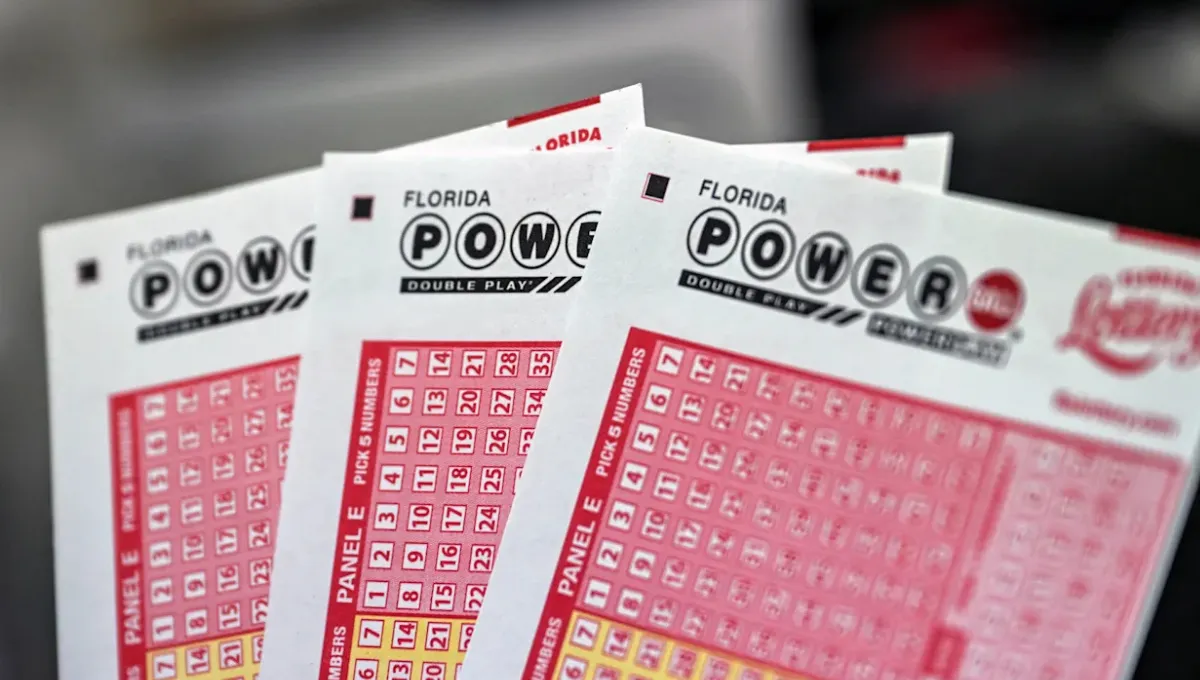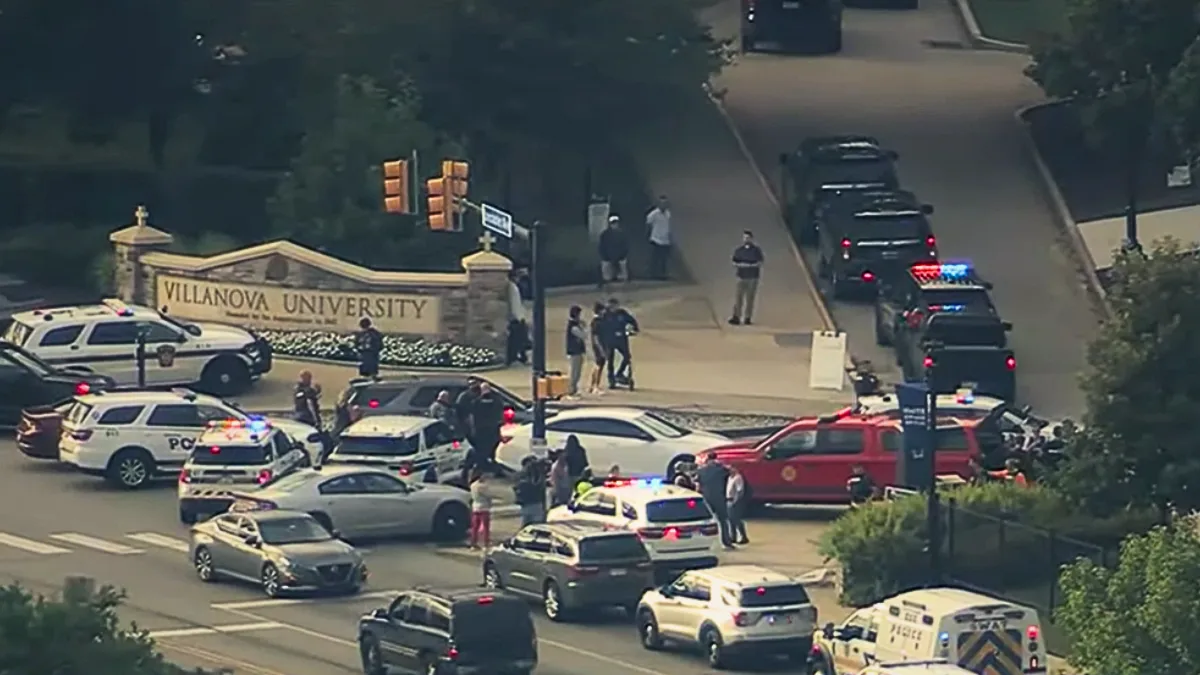BEIJING- Russian President Vladimir Putin and Chinese leader Xi Jinping praised their nations’ growing partnership during talks in Beijing on Tuesday, describing relations as being at an “unprecedented level” on the eve of China’s largest-ever military parade.
Putin, who referred to Xi as a “dear friend,” emphasized Moscow’s alignment with Beijing amid mounting Western sanctions. China, in turn, announced it will trial visa-free entry for Russian travelers for one year beginning September 15, while Russia plans to boost natural gas exports to its eastern neighbor.
A Display of Unity
The meeting in Beijing’s Great Hall of the People comes as Xi prepares to host a massive military parade marking the 80th anniversary of Japan’s surrender in World War II. North Korean leader Kim Jong Un is also expected to attend in a rare international appearance, underscoring what analysts say is a show of solidarity among Russia, China, and North Korea.
Tens of thousands of Chinese troops are set to march in the capital on Wednesday, with Putin, Xi, and Kim standing side by side. The display is widely viewed as a message of resistance against Western pressure over Russia’s war in Ukraine.
Strengthening Economic Ties
Russia has increasingly turned to China as a key trading partner since Western sanctions slashed its access to European markets. Moscow hopes energy exports to China will compensate for lost revenues. Russian officials said that once new pipeline projects are complete, gas shipments to China could reach 106 billion cubic meters annually—still far below pre-war volumes supplied to Europe.
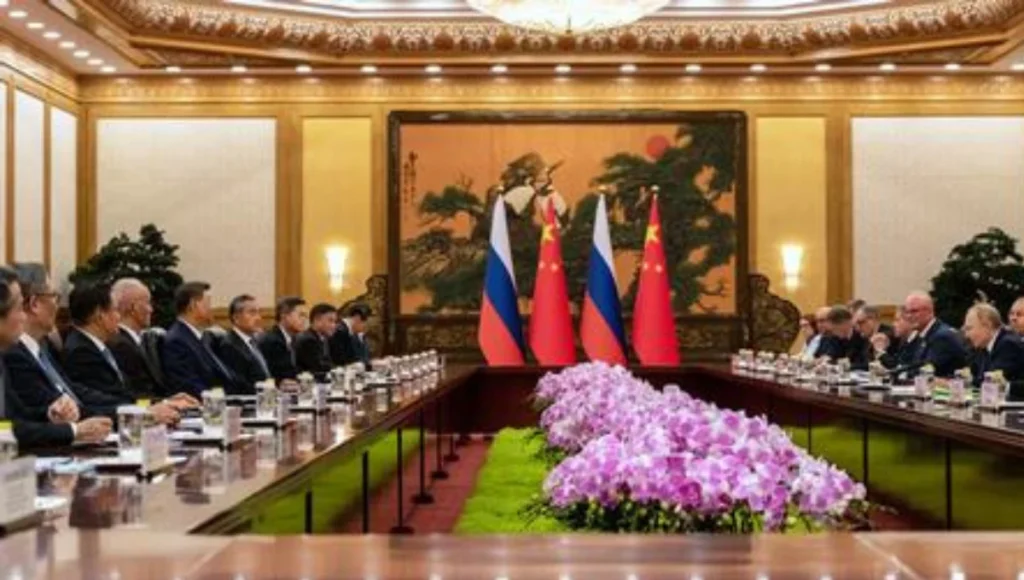
Beijing, meanwhile, has sought to project itself as a stabilizing global economic force. Xi highlighted that China-Russia relations had “withstood the test of international changes” and vowed to work with Moscow toward what he described as a “more just and reasonable global governance system.”
Western Criticism and Strategic Messaging
Both leaders have intensified criticism of the West in recent days. At the Shanghai Cooperation Organisation summit in Tianjin on Monday, Xi urged member states to “oppose Cold War thinking, bloc confrontation, and bullying behavior,” while Putin blamed the West for triggering the conflict in Ukraine.
The military parade is also notable for Kim Jong Un’s attendance—the first time a North Korean leader has joined such an event in China since Kim Il-Sung’s visit in 1959. His presence highlights North Korea’s deepening cooperation with Moscow, as Pyongyang has reportedly supplied weapons and troops to support Russia’s invasion.
A Signal of Shifting Power
Xi’s high-profile welcome of both Putin and Kim underscores Beijing’s ambitions to expand its diplomatic influence at a time when global power balances are shifting. While most Western leaders are boycotting the event over Russia’s invasion of Ukraine, China’s alignment with Moscow sends a clear signal of its strategic choices.
For Putin, the Beijing meetings offer both political validation and a chance to secure economic lifelines. For Xi, the show of unity reinforces China’s image as a counterweight to U.S. influence—while deepening ties with leaders shunned by the West.
